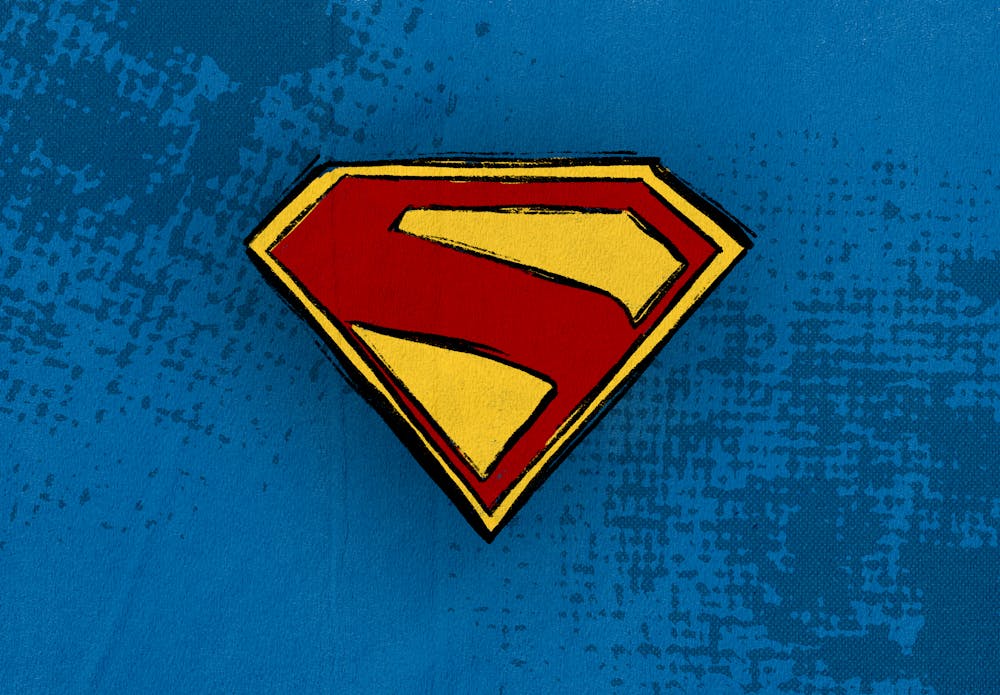The newest reboot of one of fiction’s most recognizable heroes came to theaters July 11. From trailers and promotional material, “Superman” promised to be different from the comic book movies audiences have been used to over the last 15 years — and it kept to that promise. While most contemporary comic book movies attempt to ground the material in the real world, writer and director James Gunn asks the viewer to suspend their disbelief and embrace the fantastical.
Gunn’s “Superman” is lifted straight from the pages, complete with pocket dimensions, skyscraper-sized monsters and red trunks. Apart from its occasionally lack-lustered writing, the film embraces the character’s most bizarre aspects and sets a tone of faithfulness to the source material for future installments within this universe.
Gunn was hired in 2022 as co-CEO of DC Studios after his largely successful “The Suicide Squad” and spin-off television show “Peacemaker” on HBO Max that brought life and interest back to DC Studios. Since then, he has stated his lengthy plan for an interwoven DC universe, similar to the structure popularized by Marvel Studios over the last two decades. “Superman” acts as the kickstarter for this saga, establishing one of DC’s most important heroes and the environment in which he lives.
The movie follows David Corenswet’s Superman, also known as Clark Kent, as he navigates learning how to be a hero. He is morally anchored by a video recording of his Kryptonian parents telling him that they sent him to Earth to protect people, and when we meet him, Superman has been active for three years and is well-known around the world.
After his controversial involvement in a geo-political conflict between the fictional countries of Boravia and Jarhanpur, questions arise about Superman’s power and trustworthiness. These criticisms are driven by genius billionaire Lex Luthor, played by Nicholas Hoult. Luthor is the engine behind every conflict in the movie, using his boundless resources, unrivaled intellect and tactful deception to dispose of Superman and seize more global control.
When Luthor reveals new footage showing that Superman’s parents sent him to Earth for nefarious purposes, the media, government and public begin to turn on him. Superman must enlist help from both his mangy dog Krypto and the members of the Justice Gang to defeat Luthor and his personal group of metahumans.
The release of the new footage introduces the internal conflict in the movie, which is how Superman grapples with who he believes he is destined to be. When Clark finds out about his parents’ original ambitions for him, he loses everything he thought he knew about his identity and his purpose until he is reminded by his adopted father that his own actions and beliefs dictate the person he is, not anyone else’s. The themes of identity and humility in the film maintain the strong heart central to the character of Superman.
The casting of this movie is phenomenal, with performances that will please any die-hard Superman fan. David Corenswet gives the perfect mix of compassion and determination to embody the character of Superman. His version is reminiscent of portrayals like Christopher Reeve’s in the Richard Donner films, “Superman: The Animated Series,” and the comic book “All-Star Superman,” which Gunn cites as a direct influence. Corenswet’s performance is complimented by Hoult’s, who gushes with envy and hatred for Superman in every scene.
The best casting, however, might go to Rachel Brosnahan’s Lois Lane. Lane is shown to be a sharp, driven and capable journalist and writer. Her inherent distrust about the world around her foils Clark’s simplistic and sometimes naive belief in righteousness. Early in the film, we see these opposing attitudes juxtaposed in an interview scene, with Lois asking Superman difficult questions about the integrity of his actions to end the war.
These three primary characters are supported by a large and colorful cast, highlighted by the three members of the “Justice Gang” — Guy Gardner, Mr. Terrific and Hawkgirl played by Nathan Fillion, Edi Gathegi and Isabela Merced respectively. In the movie, they act as a separate super-group who modulate between working alongside and butting heads with Superman. Their inclusion helps broaden the universe in which Superman lives and is a refreshing choice, as none of these characters have truly been explored on the silver screen.
This movie’s main issue comes from the writing. The dialogue often feels forced and expositional, taking unnecessary time to explain aspects of Superman and his world that could have been shown instead of told directly to the audience. In one scene, robots at Superman’s fortress mend a battered Superman by exposing him to the sun’s light. During this operation, one of the robots describes the process to the other robots, despite the fact that this is likely a routine procedure for them and should require no explanation.This shortcoming notwithstanding, the movie still succeeds in most other aspects.
“Superman” is a comic book come to life. It strikes a beautiful balance between light, campy fun and tackling difficult questions about power and the best way to wield it. At its core, the movie is about what the best Superman stories have always had the unique ability to showcase — what it means to be a hero and what it means to be human.







